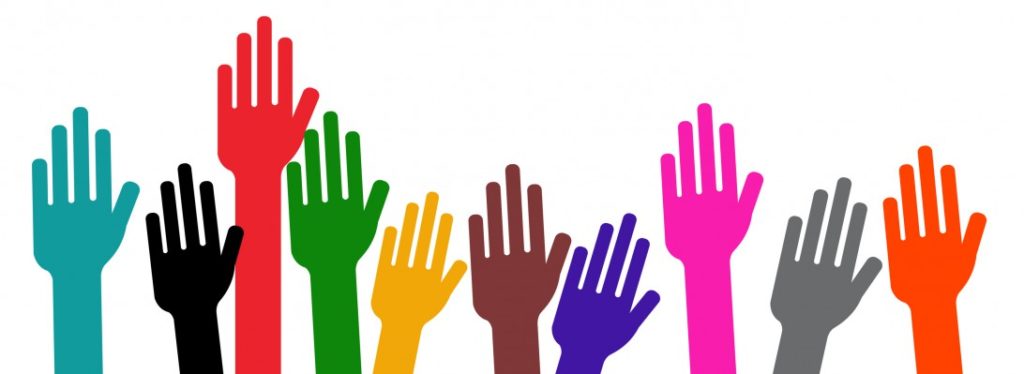
Babasaheb Ambedkar and Quest for Democracy in India
India became the republic on 26th January 1950. India is People’s Republic. It does not belong to any religious group or ideology. Babasaheb Ambedkar was the staunch advocate of People’s Republic since his initiation in the public service. He fought for establishing democracy in India. It was to his efforts that Indians enjoy fruits of People’s Republic and their participation in it. While democracy is in question in many democracies in the world, India being no exception, it is important to understand “democracy” as envisioned by the founding father of Indian democracy, Babasaheb Ambedkar.
Babasaheb studied with the great philosopher of democracy, John Dewey, in the Columbia University. His thinking on democracy owes much to this great man, John Dewey. He read him widely and deposits of John Dewey’s thinking are visible in Babasaheb’s writings and speeches. The Buddha had a profound influence on Babasaheb Ambedkar.
It is interesting to study Babasaheb’s mind from the democratic and Buddhist point of views.
Like his teacher, John Dewey, Babasaheb Ambedkar defined democracy in many ways. Carson categorised around 29 ways in which John Dewey defined democracy. Babasaheb Ambedkar was equipped with these ranges of definitions in the writings of John Dewey, but he used these definitions to further the cause of democracy in India. Let us look at a few definitions:
- Democracy is by the people, of the people, for the people
- Democracy is not only political, but social
- Democracy as an attitude of respect and reverence towards fellow human beings
- Democracy as a way of life
- Democracy as a revolution for social and economic transformation
We can extend the list further, but we need just a few to anchor our discussion.
In, India, the people are divided into more than 3000 castes and several religions. The people are divided into regions, languages, religious groups, and ethnic identities. These divisions create possibilities of ethnic nationalism as well, which are superimposed on India’s political democracy. The most noticeable superimposition on India’s political democracy is “Brahmin-Bania Nationalism”, otherwise known as Hindu Nationalism. However, the Indian constitution promotes civil nationalism, in which, rights of the individual citizen are promoted.
Babasaheb Ambedkar cautioned about the contradiction in the Indian democracy. In India, there is a political democracy, but social and economic democracies are completely missing. In fact, in India, there is a social and economic dictatorship. For example, the social is monopolised by the priestly class, Brahmins and economic is monopolised by the Banias. This powerful social-economic (Brahmin-Bania) axis distorts the political structure as well. The democratic political structure is new, but the social-economic axis centuries old. The political structure should have been weakened by the new political structure, but on the contrary political democracy is being undermined by the social-economic tradition of India.
Hence for the success of democracy in India, it is vital to have strong social and economic movements. That is why Phule-Shahu-Ambedkar movement is the greatest democratising force that builds India. In the absence of this movement, Indian democracy will be destroyed by religious fundamentalists.
Hinduism is the antithesis of democracy as it divides people into caste system. Castes are anti-democratic and promotion of caste is anti-democratic.
The Brahmin-Bania axis has been exploiting the caste divisions to keep their power intact. However, anti-Brahmin and anti-caste movements have posed major challenge to the autocracy of Brahmin-Bania axis. The Shudras are rising slowly. Political heavyweights like Kanshi Ram understood how caste can also be used to cut the roots of Brahminism.
The politicisation of the lower castes and their political alliances will help to dissolve social and economic hierarchies as well. The social movement of Shudras and SCs will create political upheavals. It is necessary that two strands must work together: political and social-economic, as they impinge on one another. Democracy is not just about periodic elections; it is also about way of life. In other words, democracy is like a religion, an ideal worth living for and worth dying for.
The way of life that is democratic in its essence is the Buddhist way of life.
Buddhism and democracy as a way of life are like two sides of the same coin. Both have ethics as the basis of their foundation of liberty. Fraternity is a core value of Buddhism and so of democracy as envisioned by Babasaheb Ambedkar. In short, democracy is breaking barriers between human being. If understood from the Buddhist point of view, the ultimate reality of human existence is interdependence, that is, anatta, which is the realisation that any quest of isolated self is misleading and leads to pain. Human beings realises their full humanness with and in the company of other human beings and when they transcend their self.
Babasaheb showed the path to true realisation of human personality which is the essence of democracy.
Author – Mangesh Dhaiwale, Human Rights Activist



+ There are no comments
Add yours